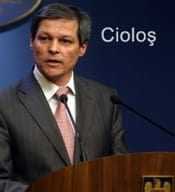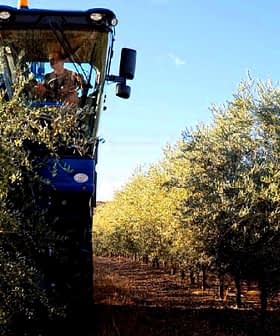As thousands of Spain’s olive oil producers took to the streets today in protest over paltry prices, the European Commission agreed to at least analyze their case for the immediate provision of private storage aid.
Today’s protests concentrated in Jaén, the world capital of olive oil production, and industry groups say every fortnight a protest will be held in other locations around the country until the EC agrees to subsidize the vat storage of surplus olive oil until producer prices improve.
 European Commissioner for Agriculture Dacian Cioloş said yesterday that between now and an EC management council meeting on April 13, he would closely examine Spain’s case. However, he reiterated that the situation still did not appear to meet the conditions required for the bulk storage payments. Firstly, olive oil prices in Spain were higher than the trigger levels and secondly, there was no proof of serious market disturbance.
European Commissioner for Agriculture Dacian Cioloş said yesterday that between now and an EC management council meeting on April 13, he would closely examine Spain’s case. However, he reiterated that the situation still did not appear to meet the conditions required for the bulk storage payments. Firstly, olive oil prices in Spain were higher than the trigger levels and secondly, there was no proof of serious market disturbance.
He was speaking after a meeting of EU agriculture ministers during which Greece, Italy, France, Cyprus, Portugal and Poland supported Spain’s call for the storage aid.
Last month, Cioloş rejected an earlier such bid by Spain, saying that the country’s problem lay with an imbalance of power held by distributors and that the aid was designed to address cyclical, not structural, problems.
EC sources said that this time, having seen that Spain was not the only country with the problem, Cioloş “had not closed the door” to the idea of providing aid “but neither had he left it very wide open.” While Greece was also suffering prices low enough to trigger private aid, the cause was regarded as structural and thus also did not meet the private aid criteria, they said.
According to the EC, olive oil prices in Spain last year were between six and thirteen (in the case of EVOO) percent above the thresholds for private storage aid.
The average price of oil fell to €1.84 ($2.60) per kg in Spain last month, but the thresholds for private storage – set in 1998 – are €1.77 ($2.39) for extra virgin olive oil, €1.71 ($2.30) for virgin olive oil and €1.52 ($2.05) for lampante oil, prices far removed from current production costs.
Spain’s Agriculture Minister Rosa Aguilar hailed Cioloş’s agreement to study the situation as “a first step”. Government sources said that the EC’s commitment to study Spain’s application would itself probably boost prices in coming weeks.
Francisco Reyes, secretary general of the PSOE (Spain’s ruling party) in Jaén, said while storage aid should be pushed for, it would not address producers’ fundamental problem – their lack of cohesion. In a clear reference to the dominance of Spain’s highly concentrated food distribution sector, he said it was untenable for the current situation to continue in Andalusia “where there are 300 selling oil and only three buying.”
Meanwhile, COAG, one of Spain’s largest agrarian unions, estimated that more than 12,000 olive growers and oil producers had participated in today’s protests. Further demonstrations will be held in Córdoba (April 1), Toledo (April 15) and Mérida (April 29).








